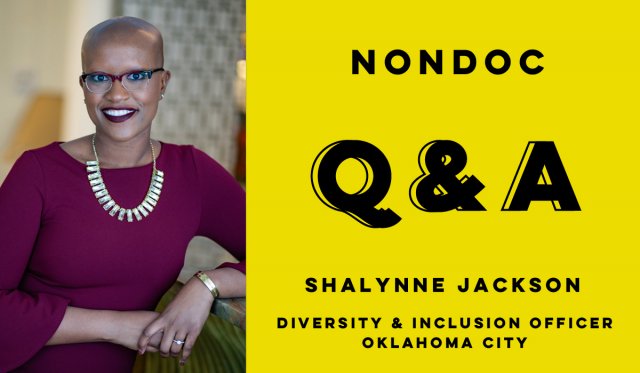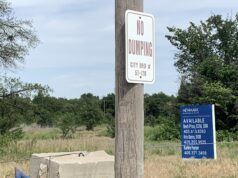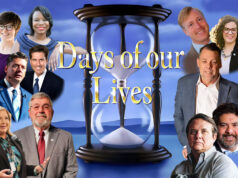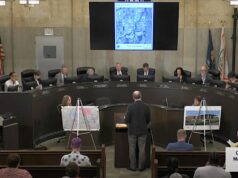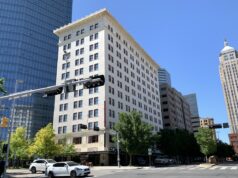In mid-January, Oklahoma City announced the hiring of its first diversity and inclusion officer, Shalynne Jackson, to “lead the execution of the city’s strategy for diversity, equity and inclusion, including providing training, implementing best practices, and providing coaching, guidance and education.”
Few official details have been released about the new office, which OKC Mayor David Holt has said he asked City Manager Craig Freeman to create when Freeman was first hired. Freeman told News 5 that Jackson will be helping to examine the city government and promote equity internally.
“We need to make sure that we’re looking into our organization, and being honest with ourselves about areas where we may have disadvantages for employees or have an environment where people don’t have the same level of opportunity to advance or to seek promotional opportunities,” Freeman said.
Jackson, who is from Oklahoma but spent the past couple of years in Arkansas, studied criminology and human relations as an undergraduate at the University of Oklahoma and went on to earn a master’s degree in human relations from OU as well.
She previously worked as an inclusion strategist for Walmart and the natural gas company OneOK. She also runs her own consulting firm, working with companies to increase inclusion in the workplace.
NonDoc caught up with Jackson shortly after she started her new job for a conversation about the new office she is running and her vision for diversity and inclusion within OKC’s municipal government.
The following conversation has been lightly edited for clarity and style.
The concept of “diversity” can be hard to pin down. What does diversity mean to you?
Diversity refers to the characteristics that make us all different. It’s hard for me to talk about diversity without inclusion, because focusing on diversity alone won’t help us make the difference we’re seeking to achieve. Inclusion is action. It’s about being intentional with our behaviors to ensure that all people feel valued, recognized and respected.
Tell us a little bit about yourself and your background. Where did you grow up, and how did you get into the kind of work you’ll be doing as OKC’s diversity and inclusion officer?
I grew up in Tulsa and was raised by a single mother and my maternal grandparents. My father was incarcerated most of my life. I’m a first generation college graduate (Boomer!), and I was diagnosed with Alopecia at age 6. Additionally, I am a wife, mother and a woman of faith.
I name all of these aspects of my diversity dimensions because they’re important to why I do this work. I know what it’s like to cover and assimilate. I also know what it feels like to overcome obstacles and achieve what society told you was impossible. I do this work because I want everyone to have equitable opportunity to attain success while remaining true to their diversity dimensions. This work is not only my passion but my purpose.
You’re the first person to hold this role in OKC. What can you tell us about how the office will be set up and what the city hopes the office will accomplish? Who are you reporting to, and what kinds of things will you be doing?
I report to City Manager Craig Freeman. While I will work with all departments, I will work closely with human resources to promote employee development and engagement. Ultimately, our goal is to create an environment that promotes authenticity, access and advancement. We’ll take leaders on an inclusive leadership journey to equip them with tools to equitably lead their teams and empower employees to bring their best selves to the workplace. As for the community, our goal is to ensure OKC is a safe place of residence for all to live, work and play.
How do you go about starting this office from scratch? What are the first steps and what will your first projects be?
You do lots of listening and relationship building. It’s important to me and city leadership that our efforts meet the specific needs of our employees and residents. In the beginning, I will spend my time connecting with employees throughout the organization, at all levels, in all departments and of all backgrounds. From there, I will work with leadership to determine our priorities and what success will look like. The same approach goes for residents. To ensure OKC is the most inclusive city for all people, it’s important to hear from all communities. While building relationships, I will be working with HR to explore policies and procedures we can update to ensure inclusivity. We’ll also begin to educate employees about diversity and inclusion fundamentals and create a common language for everyone to understand.
Your work so far has been in the private sector. Do you anticipate any challenges as you move to working in city government?
I anticipate the same challenges as the private sector — individuals may resist because they don’t understand diversity and inclusion is for everyone. And that’s OK, because we’re all in different places on our diversity and inclusion journey. It’s important to me that we meet people where they are, extending grace and patience.
To overcome this challenge, we will spend time educating individuals on what diversity and inclusion truly means and how we all benefit from inclusion. What I’m most encouraged about is that city leadership and everyone I’ve met thus far are excited and ready to lean into the work.
What’s your favorite guilty pleasure?
I am a foodie and will try anything at least once, with the exception of peanut butter. I am not a fan of anything that contains peanut butter. I also love true crime podcasts and TV shows, and my favorite hobby is biking.









